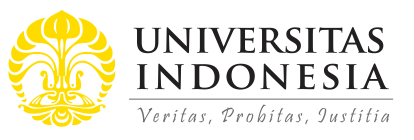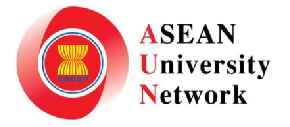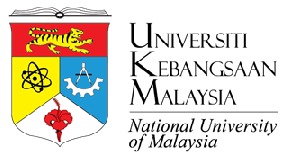
Abstract
Despite the significant role of higher education research and innovation, the quality management of such aspects in our local universities can be further transformed and better integrated with national development. This research identifies the many challenges regarding quality research management faced by many universities in Indonesia, particularly related to research and innovation. In response to such challenges, the study exhibits a comprehensive evaluation of the formulation and performance of university research policy plans and programs, examining the critical impact of Universitas Indonesia’s (UI) performance of its research policy and strategic plan. The result indicates that the performance of UI’s global research quality management policy has shown optimized, efficient, and effective outcomes. The policy has impacted Indonesia’s science, technology, and social development in line with the strategic plan, quality management, and good university governance. This study may inform higher education management on synergizing research policy and programs within the organization’s strategic plan toward global science and technology competitiveness in higher education.
References
Arocena, R., Göransson, B., & Sutz, J. (2018). Developmental universities in inclusive innovation systems: Alternatives for knowledge democratization in the Global South. Palgrave Macmillan.
Bauler, T. (2012). An analytical framework to discuss the usability of (environmental) indicators for policy. Ecological Indicators, 17, 38–45. https://doi.org/10.1016/j.ecolind.2011.05.013
Baylis, K., Honey-Rosés J., & Börner J. (2015). Mainstreaming impact evaluation in nature conservation. Conservation Letters, 9(1), 58–64. https://doi.org/10.1111/conl.12180
Bruno, N. (May 23, 2019). Learning from evaluations to shape the future: Developing key impact pathways for the European framework programme for research and innovation. European Commission, DG Research & Innovation [Paper presentation]. 8th International Evaluation Conference, Vilnius, Lithuania. https://2014.esinvesticijos.lt/uploads/main/documents/files/Bruno.pdf
Directorate of Research and Community Service Universitas Indonesia. (2013). Research master plan. Universitas Indonesia.
Dunn, W. N. (2008). Pengantar analisis kebijakan publik. Gadjah Mada University Press. Dutta, S., Lanvin, B., & Wunsch-Vincent, S. (2020). Global innovation index report (2013- 2020): Who will finance innovation? Cornell University, INSEAD, and the World Intellectual Property Organization. https://www.globalinnovationindex.org
Guba, E. G., & Lincoln, Y. S. (1989). Fourth generation evaluation. Sage Publications,Inc. https://psycnet.apa.org/record/1989-98594-000
Hazenberg, R., Wang, N., Chandra, Y., & Nicholls, A. (2019). Surveying the social innovation and higher education landscape in Hong Kong. British Council.
Hénard, F., Diamond, L., & Roseveare, D. (2012). Approaches to internationalisation and their implications for strategic management and institutional practice: A guide for higher education institutions. OECD’s Higher Education Programme (IMHE).
Hezri, A. A., & Dovers, S. R. (2006). Sustainability indicators, policy and governance: Issues for ecological economics. Ecological Economics, 60(1), 86–99. https:// doi.org/10.1016/j.ecolecon.2005.11.019
Howlett, M., & Rayner, J. (2007). Design principles for policy mixes: Cohesion and coherence in ‘new governance arrangements.’ Policy and Society, 26(4), 1–18. https://doi.org/10.1016/S1449-4035(07)70118-2
Jänicke, M., Blazejczak, J., Edler, D. & Hemmelskamp, J. (2000). Environmental policy and innovation: An international comparison of policy frameworks and innovation effects. In J. Hemmelskamp, K. Rennings, & F. Leone (Eds.). Innovation-oriented environmental regulation (pp. 125–152). Springer. https://link.springer.com/chapter/10.1007/978-3-662-12069-9_7
Keskitalo, E.C.H., Juhola, S., Baron, N., Fyhn, H., & Klein, J. (2016). Implementing local climate change adaptation and mitigation actions: The role of various policy instruments in a multi-level governance context. Climate, 4(1), Article 7. https://doi.org/10.3390/cli4010007
Kuhlmann, S. (2003). Evaluation of research and innovation policies: A discussion of trends with examples from Germany. International Journal of Technology Management, 26(2), 131–149.
Lay, J., Brandi, C., Das, R. U., Klein, R., Thiele, R., Alexander, N., & Scholz, I. (2017). Coherent G20 policies towards the 2030 agenda for sustainable development. G20 Insights Platform. https://www.g20-insights.org/wpcontent/uploads/2017/03/TF_2030_Agenda_PolicyCoherence.pdf
Link, A. N., & Scott, J. T. (2012). The theory and practice of public sector R&D economic impact analysis. National Institute of Standards and Technology, U.S. Department of Commerce.
Lundvall, B-Å., & Borrás, S. (2005). Science, technology, and innovation policy. In J. Fagerberg, D. C. Mowery, & R. R. Nelson (Eds.), The Oxford handbook of innovation (pp. 599–631). Oxford University Press.
Mees, H. L. P., Dijk, J., van Soest, D., Driessen, P. P. J., van Rijswick, M. H. F. M. W., & Runhaar, H. (2014). A method for the deliberate and deliberative selection of policy instrument mixes for climate change adaptation. Ecology & Society, 19(2). http://dx.doi.org/10.5751/ES-06639-190258
OECD (2013). Evaluating development activities. https://www.oecd.org/dac/peer- reviews/12%20Less%20eval%20web%20pdf.pdf
Peters, B. G. (2012). Governance as political theory. In J. Yu (Ed.), Civil society and governance in China (pp. 17–37). Palgrave Macmillan.
Pollitt, C. (2015). Kuhlmann, S. and Wollmann, H. (2014) Introduction to comparative public administration: Administrative systems and reforms in Europe. International Review of Administrative Sciences, 81(1), 214–215. https://doi.org/10.1177/0020852314568777
Presley, J. B., & Leslie, D. W. (1999). Understanding strategy: An assessment of theory and practice. In J. C. Smart, & W. G. Tierney (Eds.), Higher education: Handbook of theory and research (pp. 201–239). Agathon Press.
Provus, Malcom. (1971). Discrepancy evaluation for educational program improvement and assessment. McCutchan Publiching Corporation.
Rakhmani, I., & Siregar, F. (2016). Reforming research in Indonesia: Policies and practice. Global Development Network working paper series.
Rist, R. C. (Ed.). (1995). Policy evaluation: Linking theory to practice. Brookfield, Vt.
Rowley, D. J., Lujan, H. D., & Dolence, M. G. (1997). Strategic change in colleges and universities: Planning to survive and prosper. Jossey-Bass.
Rowley, D. J., & Sherman, H. (2002). Implementing the strategic plan. Planning for Higher Education Journal, 30(4), 5–14.
Stake, R. E. (1967). The countenance of educational evaluation. Teachers College Record, 68(7), 1–15. https://doi.org/10.1177/016146816706800707
Stufflebeam, D. L., & Shinkfield, A. J. (2007). Evaluation theory, models, and applications. Jossey-Bass.
Suyanti, E. (2011). Strategi internasionalisasi dalam bidang penelitian pada Universitas Indonesia dan Institut Pertanian Bogor. Jurnal Manajemen Pendidikan, 2(1), 10. https://doi.org/10.21009/jmp.v2i1.2462
Tilaar, H. A. R., & Nugroho, R. (2008). Kebijakan pendidikan. Pustaka Pelajar. UNESCO. (1986). Evaluative research in population education. UNESCO Regional for Education in Asia and The Pacific.
United Nations. (n.d.). The 17 goals. https://sdgs.un.org/goals
White, H. (2009). Theory-based impact evaluation: Principles and practice. Journal of Development Effectiveness, 1(3), 271–284. https://doi.org/10.1080/19439340903114628
Recommended Citation
Sari, Rini Ambar; Matin, Matin; and Akbar, Maruf
(2023).
Policy Evaluation on International Research Quality Management of Universitas Indonesia: Impact Towards Development of the Nation.
ASEAN Journal of Community Engagement, 7(2), 179-195.
Available at: https://doi.org/10.7454/ajce.v7i2.1144







